 Technology peripherals
Technology peripherals AI
AI The list of 2022 AAAS Fellows has been released, and Duke University's Chen Yiran and quantum computing expert Scott Aaronson have been selected.
The list of 2022 AAAS Fellows has been released, and Duke University's Chen Yiran and quantum computing expert Scott Aaronson have been selected.The 2022 AAAS Fellow list is out! The inductees include 505 scientists, engineers or innovators in various scientific disciplines in recognition of their important contributions to STEM disciplines, including groundbreaking research, leadership in specific fields, teaching and mentoring, promotion Collaborate and improve public understanding of science.
AAAS Fellows are elected annually by their peers who serve on the AAAS Board of Governors, the membership governing body of the organization with its earliest class dating back to 1874.
The AAAS Fellows are selected from subject areas including agriculture, food and renewable resources, anthropology, astronomy, atmospheric and hydrospheric sciences, biological sciences, chemistry, education, engineering, geology and Geography, history and philosophical sciences, industrial technology, information computing and communications, linguistics and language science, mathematics, medical science, neuroscience, pharmaceutical science, physics, psychology, socioeconomic and political science, statistics and other disciplines.
AAAS Fellows have made important contributions in their respective disciplines, including but not limited to:
- Hubble Spaceflight Telescopes applied to science missions;
- Modeling and analysis of epidemics and other global public health challenges;
- Advancing diversity in science gender, equity and inclusion;
- Develop research standards to improve ethical conduct in science, technology, engineering, mathematics and other fields;
- Makes groundbreaking contributions to the field of radiology and works to eliminate health disparities through expanded institutional partnerships;
- Protect marine ecosystems and their biodiversity.
Heart of Machine Here is an introduction to the Chinese information who were selected as AAAS 2022 Fellows in the discipline of information, computing and communication.
Yiran Chen, Duke University

Dr. Yiran Chen currently works in electrical and computer engineering at Duke University Department Professor, Director of the National Science Foundation (NSF) Next Generation Mobile Network and Edge Computing Artificial Intelligence Institute (Athena), National Science Foundation (NSF) New and Sustainable Computing (ASIC) University-Industry Collaborative Research Center (IUCRC) ), and co-director of the Center for Computational Evolutionary Intelligence (DCEI) at Duke University.
Dr. Chen Yiran received a bachelor’s degree and a master’s degree from Tsinghua University, and a doctorate from Purdue University in 2005. After five years in industry, he joined the University of Pittsburgh as an assistant professor in 2010 and was promoted to tenure-track associate professor, Bi-Century Alumni Chair in 2014, before joining the faculty at Duke University a few years later. His research team focuses on novel memory and storage systems, machine learning and neuromorphic computing, and mobile computing systems.
Dr. Chen Yiran has published one monograph, nearly 500 academic papers, and obtained 96 U.S. patents. He has served as an editor for dozens of international academic journals and served on the technical and organizational committees of more than 60 international academic conferences. He is currently the Editor-in-Chief of IEEE Circuits and Systems Magazine. He has won 9 best paper awards, one best poster award, and 15 best paper nominations in well-known international academic conferences and seminars such as MICRO, KDD, DATE, SEC, etc. Dr. Yiran Chen has also received numerous awards for her contributions to the academic community, such as the IEEE Computer Society Edward J. McCluskey Technical Achievement Award. He has been selected as a Distinguished Lecturer by IEEE CEDA and CAS. He is a Fellow of ACM, IEEE, and AAAS, and serves as Chairman of the ACM Design Automation Group (SIGDA).
Yun Fu, Northeastern University

Yun Fu is a Distinguished Professor in the School of Engineering and the Khoury School of Computer Science at Northeastern University. He has published more than 500 scientific publications, holds more than 35 patented inventions, and has won multiple best paper awards at top academic conferences. Yun Fu is also a member of the European Academy of Sciences, an IEEE Fellow, an AAIA Fellow, an ACM Distinguished Member, and a member of the ACM Future Computing Academy.
Hacken Li, State University of New York

Hacken Li is currently at the State University of New York Chair professor, he is also an academician of the European Academy of Sciences, an academician of the American Association for the Advancement of Science, an IEEE Fellow, and an AAIA Fellow. Professor Hacken Li has published hundreds of academic papers in academic journals and conferences, and has won many best paper awards.
Wang Xiaofeng, Indiana University Bloomington

Wang Xiaofeng is currently a computer science and engineering professor at Indiana University Professor James H. Rudy of the School, who is also the co-director of the Center for Security and Privacy in Informatics, Computing, and Engineering and the program director of the Master of Science in Secure Computing (MSSC), is also an IEEE Fellow.
His research focuses on system security and data privacy, with an emphasis on security and privacy issues in mobile and cloud computing, as well as privacy issues in human genome data dissemination and computation.
Professor Wang Xiaofeng is considered one of the most distinguished researchers in the field of system security research, known for his high-impact research on security analysis of real-world systems and biomedical data privacy. famous. His research projects on payments and single sign-on API integration, Android and iOS security, and IoT protection are changing the way the industry builds these systems. Additionally, he is a pioneering researcher in human genome privacy and co-founder of the iDASH Genome Privacy Competition.
Professor Wang Xiaofeng has also received many honors in scientific research, including the Privacy Enhancement Technology Outstanding Research Award (PET Award) and the Best Practical Paper Award at the 32nd IEEE Security and Privacy Symposium. (IEEE S&P Oakland) and two Outstanding Paper Awards at the 26th Network and Distributed Systems Security Symposium (NDSS).
In addition to the above Chinese, we also see quantum computing guru Scott Aaronson is also on the list.

Scott Aaronson is a professor of computer science at the University of Texas at Austin. His main research area is theoretical computer science. His research interests include the capabilities of quantum computers. and limitations, as well as computational complexity theory, etc. He is the recipient of the Tomassoni-Chisesi Prize in Physics (2018), the Simons Investigator Award (2017), and the National Science Foundation’s Alan T. Waterman Award (2012). In 2019, Scott Aaronson was elected ACM Fellow for "contributions to quantum computing and computational complexity."
The following is the complete list of subjects in the field of information, computing and communications:

2022 The complete list of AAAS Fellows of the year: https://www.aaas.org/page/2022-fellows-0?adobe_mc=MCMID=74911344417560070633847861783942742589|MCORGID=242B6472541199F70A4C98A6%40AdobeOrg|TS=1675 213810
The above is the detailed content of The list of 2022 AAAS Fellows has been released, and Duke University's Chen Yiran and quantum computing expert Scott Aaronson have been selected.. For more information, please follow other related articles on the PHP Chinese website!
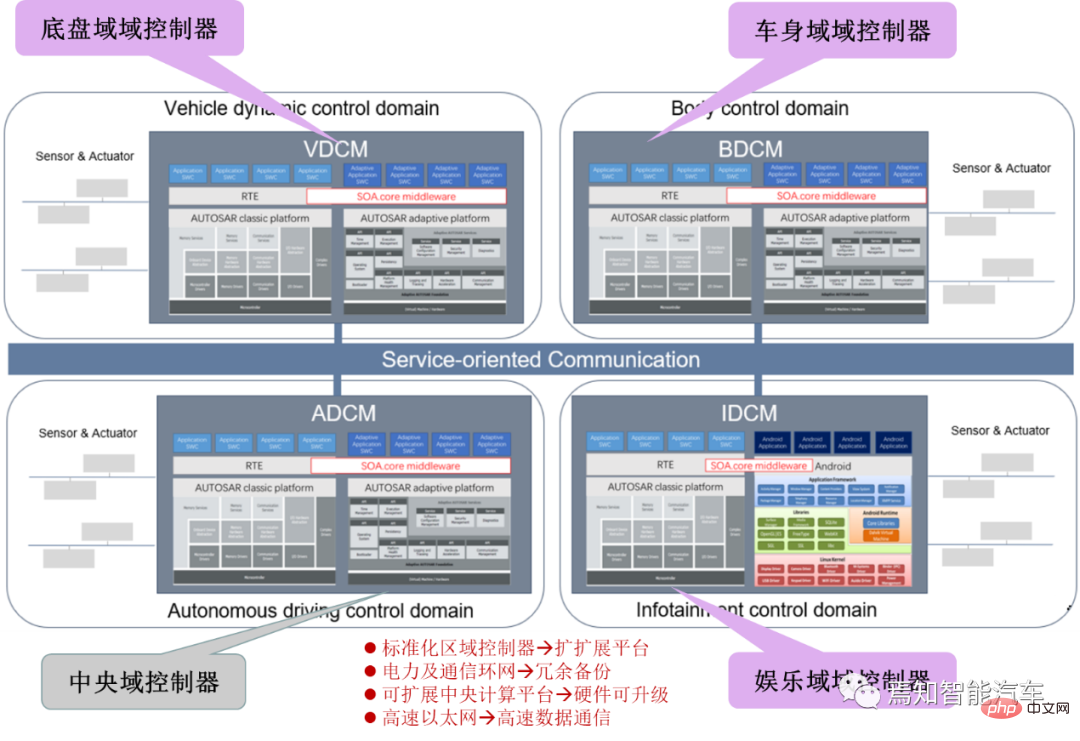 SOA中的软件架构设计及软硬件解耦方法论Apr 08, 2023 pm 11:21 PM
SOA中的软件架构设计及软硬件解耦方法论Apr 08, 2023 pm 11:21 PM对于下一代集中式电子电器架构而言,采用central+zonal 中央计算单元与区域控制器布局已经成为各主机厂或者tier1玩家的必争选项,关于中央计算单元的架构方式,有三种方式:分离SOC、硬件隔离、软件虚拟化。集中式中央计算单元将整合自动驾驶,智能座舱和车辆控制三大域的核心业务功能,标准化的区域控制器主要有三个职责:电力分配、数据服务、区域网关。因此,中央计算单元将会集成一个高吞吐量的以太网交换机。随着整车集成化的程度越来越高,越来越多ECU的功能将会慢慢的被吸收到区域控制器当中。而平台化
 新视角图像生成:讨论基于NeRF的泛化方法Apr 09, 2023 pm 05:31 PM
新视角图像生成:讨论基于NeRF的泛化方法Apr 09, 2023 pm 05:31 PM新视角图像生成(NVS)是计算机视觉的一个应用领域,在1998年SuperBowl的比赛,CMU的RI曾展示过给定多摄像头立体视觉(MVS)的NVS,当时这个技术曾转让给美国一家体育电视台,但最终没有商业化;英国BBC广播公司为此做过研发投入,但是没有真正产品化。在基于图像渲染(IBR)领域,NVS应用有一个分支,即基于深度图像的渲染(DBIR)。另外,在2010年曾很火的3D TV,也是需要从单目视频中得到双目立体,但是由于技术的不成熟,最终没有流行起来。当时基于机器学习的方法已经开始研究,比
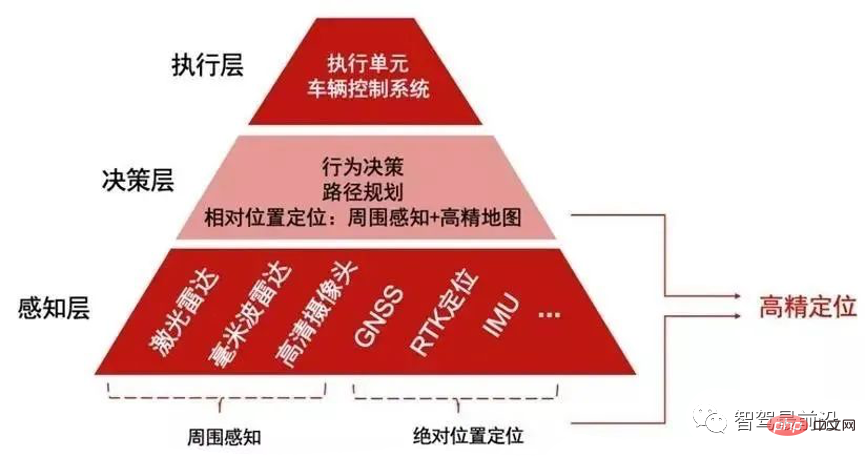 如何让自动驾驶汽车“认得路”Apr 09, 2023 pm 01:41 PM
如何让自动驾驶汽车“认得路”Apr 09, 2023 pm 01:41 PM与人类行走一样,自动驾驶汽车想要完成出行过程也需要有独立思考,可以对交通环境进行判断、决策的能力。随着高级辅助驾驶系统技术的提升,驾驶员驾驶汽车的安全性不断提高,驾驶员参与驾驶决策的程度也逐渐降低,自动驾驶离我们越来越近。自动驾驶汽车又称为无人驾驶车,其本质就是高智能机器人,可以仅需要驾驶员辅助或完全不需要驾驶员操作即可完成出行行为的高智能机器人。自动驾驶主要通过感知层、决策层及执行层来实现,作为自动化载具,自动驾驶汽车可以通过加装的雷达(毫米波雷达、激光雷达)、车载摄像头、全球导航卫星系统(G
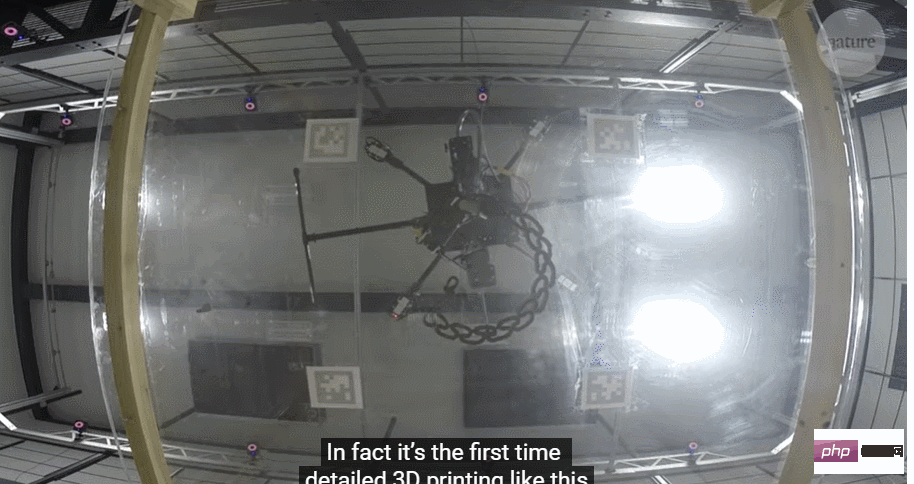 多无人机协同3D打印盖房子,研究登上Nature封面Apr 09, 2023 am 11:51 AM
多无人机协同3D打印盖房子,研究登上Nature封面Apr 09, 2023 am 11:51 AM我们经常可以看到蜜蜂、蚂蚁等各种动物忙碌地筑巢。经过自然选择,它们的工作效率高到叹为观止这些动物的分工合作能力已经「传给」了无人机,来自英国帝国理工学院的一项研究向我们展示了未来的方向,就像这样:无人机 3D 打灰:本周三,这一研究成果登上了《自然》封面。论文地址:https://www.nature.com/articles/s41586-022-04988-4为了展示无人机的能力,研究人员使用泡沫和一种特殊的轻质水泥材料,建造了高度从 0.18 米到 2.05 米不等的结构。与预想的原始蓝图
 超逼真渲染!虚幻引擎技术大牛解读全局光照系统LumenApr 08, 2023 pm 10:21 PM
超逼真渲染!虚幻引擎技术大牛解读全局光照系统LumenApr 08, 2023 pm 10:21 PM实时全局光照(Real-time GI)一直是计算机图形学的圣杯。多年来,业界也提出多种方法来解决这个问题。常用的方法包通过利用某些假设来约束问题域,比如静态几何,粗糙的场景表示或者追踪粗糙探针,以及在两者之间插值照明。在虚幻引擎中,全局光照和反射系统Lumen这一技术便是由Krzysztof Narkowicz和Daniel Wright一起创立的。目标是构建一个与前人不同的方案,能够实现统一照明,以及类似烘烤一样的照明质量。近期,在SIGGRAPH 2022上,Krzysztof Narko
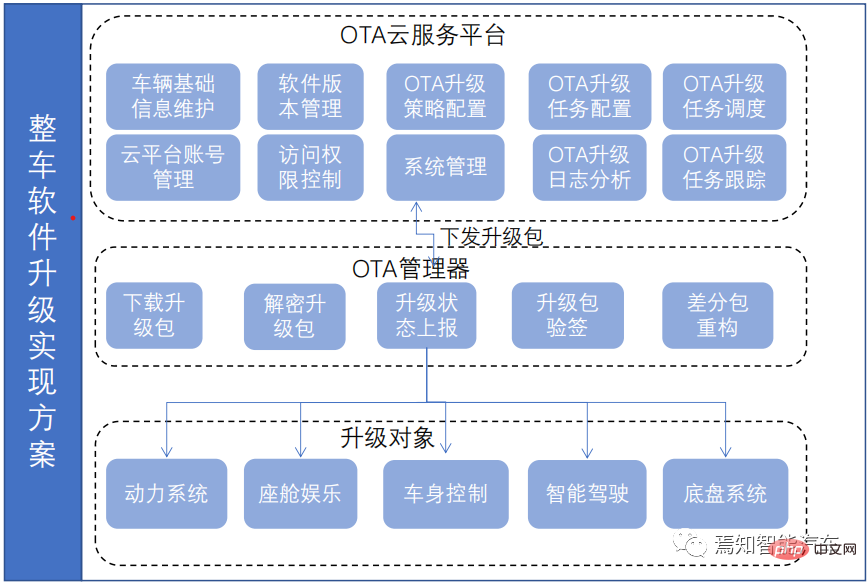 一文聊聊智能驾驶系统与软件升级的关联设计方案Apr 11, 2023 pm 07:49 PM
一文聊聊智能驾驶系统与软件升级的关联设计方案Apr 11, 2023 pm 07:49 PM由于智能汽车集中化趋势,导致在网络连接上已经由传统的低带宽Can网络升级转换到高带宽以太网网络为主的升级过程。为了提升车辆升级能力,基于为车主提供持续且优质的体验和服务,需要在现有系统基础(由原始只对车机上传统的 ECU 进行升级,转换到实现以太网增量升级的过程)之上开发一套可兼容现有 OTA 系统的全新 OTA 服务系统,实现对整车软件、固件、服务的 OTA 升级能力,从而最终提升用户的使用体验和服务体验。软件升级触及的两大领域-FOTA/SOTA整车软件升级是通过OTA技术,是对车载娱乐、导
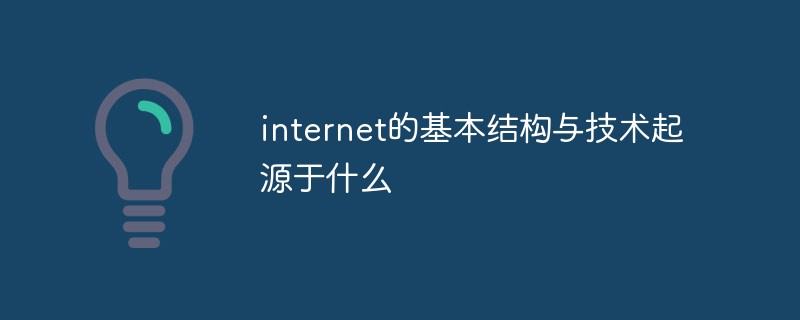 internet的基本结构与技术起源于什么Dec 15, 2020 pm 04:48 PM
internet的基本结构与技术起源于什么Dec 15, 2020 pm 04:48 PMinternet的基本结构与技术起源于ARPANET。ARPANET是计算机网络技术发展中的一个里程碑,它的研究成果对促进网络技术的发展起到了重要的作用,并未internet的形成奠定了基础。arpanet(阿帕网)为美国国防部高级研究计划署开发的世界上第一个运营的封包交换网络,它是全球互联网的始祖。
 综述:自动驾驶的协同感知技术Apr 08, 2023 pm 03:01 PM
综述:自动驾驶的协同感知技术Apr 08, 2023 pm 03:01 PMarXiv综述论文“Collaborative Perception for Autonomous Driving: Current Status and Future Trend“,2022年8月23日,上海交大。感知是自主驾驶系统的关键模块之一,然而单车的有限能力造成感知性能提高的瓶颈。为了突破单个感知的限制,提出协同感知,使车辆能够共享信息,感知视线之外和视野以外的环境。本文回顾了很有前途的协同感知技术相关工作,包括基本概念、协同模式以及关键要素和应用。最后,讨论该研究领域的开放挑战和问题


Hot AI Tools

Undresser.AI Undress
AI-powered app for creating realistic nude photos

AI Clothes Remover
Online AI tool for removing clothes from photos.

Undress AI Tool
Undress images for free

Clothoff.io
AI clothes remover

AI Hentai Generator
Generate AI Hentai for free.

Hot Article

Hot Tools

SAP NetWeaver Server Adapter for Eclipse
Integrate Eclipse with SAP NetWeaver application server.

EditPlus Chinese cracked version
Small size, syntax highlighting, does not support code prompt function

MantisBT
Mantis is an easy-to-deploy web-based defect tracking tool designed to aid in product defect tracking. It requires PHP, MySQL and a web server. Check out our demo and hosting services.

SublimeText3 Linux new version
SublimeText3 Linux latest version

PhpStorm Mac version
The latest (2018.2.1) professional PHP integrated development tool




